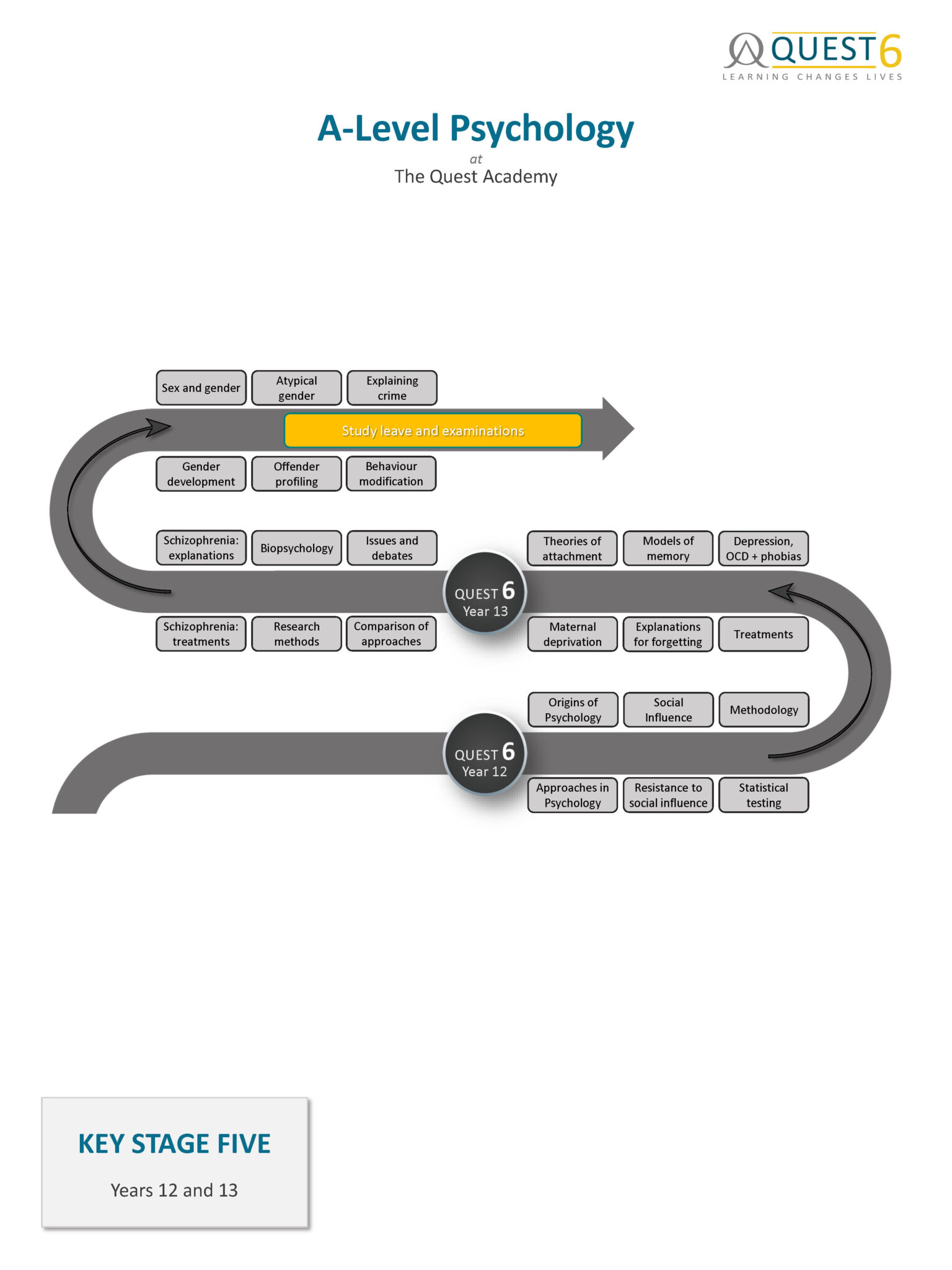Psychology
Psychology is the scientific study of the mind and behaviour. At the Quest, students are encouraged to become curious about the range of factors which influence our behaviours e.g., the structure of the brain, parenting or past traumatic experiences. Students will unpick a variety of mental disorders ranging from OCD to Schizophrenia, contrasting biological with social-psychological explanations as well as examining appropriate treatments for them. They will also explore the social processes that underpin all human behaviour, such as why individuals commit atrocities or conform to the crowd.
Studying psychology helps students to develop a better understanding of why people think and behave as they do; from understanding the everyday choices that they make to analysing why offenders commit crime. The Research Methods component of the course gives students experience of handling data, analysing statistical tests and evaluating methodology of research studies.
At the Quest, we ensure that students understand underlying psychological principles and can apply them in a variety of familiar and unfamiliar contexts. We want students to be able to think critically, analytically and evaluatively. This, alongside our knowledge-based curriculum will equip and enable students to reach well formed, logical conclusions based on scientific evidence. Content is delivered to students and then built upon through a variety of practice and application questions, with regular quality feedback being given to support student progress. The knowledge acquired then allows students to develop their analytical and critical thinking skills. We believe that knowledge underpins and enables the application of skills; both are entwined.
Ultimately, it is hoped that students will be able to evaluate a range of social-biological-cognitive explanations for all types of behaviour and to draw conclusions about behaviours based on a forensic evaluation of research. Students will be equipped with the skills to analyse the world and individuals around them in new ways, incorporating a myriad of approaches and asking questions about the nature of human agency.
Books used within the course:



